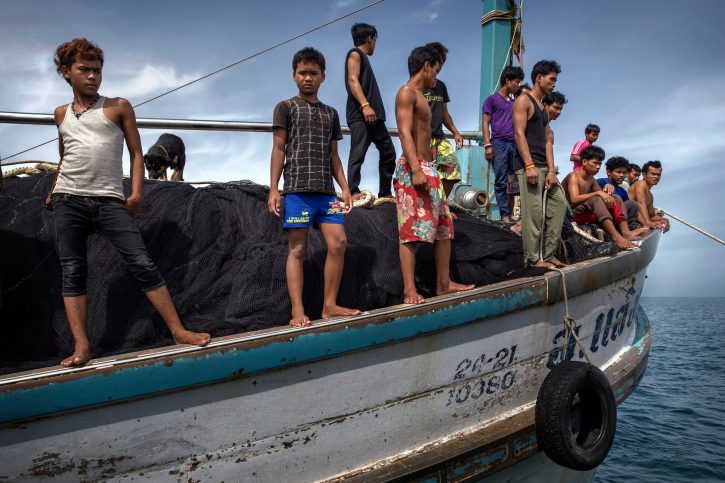The Fight Against Forced Labor in the Fishing Industry

I’ve haven’t talked about this much in awhile, but when I wrote Out of Sight, I focused a good bit on forced labor in the fishing industry. The shorter version of this is that if you buy frozen shrimp, you are almost certainly buying a product created by slave labor. This is a huge issue in southeast Asia, where boats out of nations such as Thailand and Malaysia are luring migrant labor from the tribes in northern Thailand, Laos, and Myanmar with promises and then putting them into conditions of slavery on the boats. So I am somewhat heartened that the Biden administration is taking this seriously enough to refuse to allow a boat out of Fiji from importing the fish into the U.S. due to its use of slave labor.
Customs officials have blocked a commercial fishing boat from bringing tuna and other seafood into the United States, citing what they said was the use of forced labor by its operator, a company based in Fiji.
The Customs and Border Protection agency said on Wednesday that it had found that operators of Hangton No. 112, a long-liner owned by the Hangton Pacific Co. Pte Ltd., had withheld workers’ wages, kept their identity documents and subjected them to debt bondage.
If the vessel tries to dock at a U.S. port, or distribute its cargo in the country, officials said, its cargo would be held until its operator could prove that the fish were not caught using what the agency has described as “modern-day slavery.”
After three months, the seafood could be destroyed, according to the agency, which said that the boat’s operators would have the option to export the fish to a different country.
The action is part of what the agency called a continuing initiative to intercept imports from companies that exploit workers who face arduous conditions on the job and have no voice to seek fairer treatment.
This is good. More of this. This is how you stop the use of slave labor.


